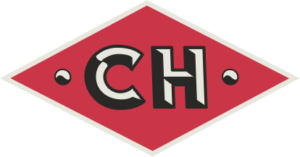Questions Job Candidates Should Ask About a Company’s Core Values

A Practical Guide with Model Questions for Job Seekers
If you will ever interview for a job, then this article is for you. It will enable you to ask meaningful questions and know with relative certainty whether your values fit with an organization’s. (Employers: You’re likely much more interested in the companion article to this one titled, The Role of Core Values During Hiring.).
“Do you have any other questions about our organization?” Most job candidates must field that question at the end of their interview. It’s not always an easy one to answer gracefully. Prospective employees often either ask a “softball” question, ask one that they crafted beforehand that may now seem forced or unnatural, or they respond with “No.”
But what if you instead asked a few thought-provoking, useful questions that will give insight into the organization’s culture?
How to Use Core Values During an Interview
Asking purposeful, targeted questions about core values during an interview gives you a unique opportunity to probe deeply beneath the organizational waterline and see if any actual steak accompanies the cultural sizzle. If the individual interviewing you (owner, manager, HR rep, etc.) doesn’t have a handle on the organization’s core values, you need to know that ASAP.
Below is a framework to enable you to answer the “Do you have any questions?” question effectively. Let’s get to work!
Step 1. Self-Identification of Values
What are your personal core values? It’s OK if you don’t have them defined – most of us don’t have them written out, so it can be a daunting question. Don’t sweat it! I’m going to coach you through crafting a set of experience statements to help guide you.
Consider these two questions:
- What are the three most positive experiences you’ve had in the workplace?
- What are the three most negative experiences you’ve had in the workplace?
Write out your answers. Brief is usually best for clarity purposes. One sentence is better than three but write a paragraph to answer each question if needed.
Step 2. Reflection
Review each of your statements from Step 1. Then ask yourself the following questions:
- What makes each of these experiences so memorable?
- What have I learned about myself from those experiences?
- Why do I still remember these experiences?
Write as much or as little as you like about these reflections.
Step 3. Emotion and Behaviors
Review your list from Step 1 and consider the following questions for each of the experiences you identified:
- What one word describes the emotion you feel when you consider each experience?
- What behavior(s) do you strive to engage in as a result of each experience?
Much like Step 2, write as much or as little as you need to answer Question 2. Once you’ve identified one emotion and one behavior for each experience statement move to Step 4.
Step 4. Your Value Statement
Now it’s time to take the work you’ve done in Steps 1-3 and craft your value statements. The simplest way to craft this statement is by following this formula:
Experience + Understanding = Value in Action
Phrased another way, you’re going to fill in the blanks on this Mad Libs-esque statement:
The experience of ______ enabled me to ______ and as a result I ______ .
Here’s a sample of how the process of developing your value statement might look in action.
- Experience statement: I was once yelled at for 15 straight minutes by the company owner – not for performance but because he perceived I had “disrespected” the organization.
- Reflections: This was memorable because I was a top performer at the organization. I had only previously heard rumors about his manic behavior and thought that it was solely reserved for employees that truly “deserved it.” I still remember the spittle flying from his lips and the wild look in his eye. I knew in that moment he was slightly unhinged and incapable of true leadership.
- Emotion and Behaviors: The emotion I feel now is different than what I felt during the incident. Today, I feel empathy. As a result of that experience, I understand a great many things – including that no matter what goes on inside your head, the people you lead deserve better from you than your baser instincts want you to behave.
Working from these reflections will enable you to craft a statement. Here’s the result.
The experience of being screamed at by the owner for no reason enabled me to understand that success does not result in leadership competence and as a result, I know I must strive every day to be even-tempered and earn the right to lead.
Repeat this process for every experience statement you crafted in Step 1. You may find when you dig into it that there is overlap between your experiences. If that happens you may be able to consolidate the total number of value statements. Remember, there is no magic number to reach. The purpose is simply to end up with a clearer idea of what matters to you.
Step 5. Research
Momentarily setting aside your work thus far, visit the website of the organization that will be interviewing you. Search through it to see whether their core values are listed. If yes, print them out and compare them to your values and value statements. Be sure to refer to what you’ve created and uncovered from the prior steps within this framework. This will allow you to compare what you value with what the organization says it values. If the organization does not publicize its core values, move immediately to Step 6.
Step 6. Preparing for the Interview
Select two of your values statements from Step 4 and craft a question from them. You will use this question in the interview to help assess your fit with the organization.
Here is what a question using the sample value statement provided in Step 4 might sound like:
“I previously worked for someone who constantly wore their emotions on their sleeve and did not think critically about how to be proactive. Instead, they were always responsive – quite often in a negative way. At this organization (insert company name here), which one of your organization’s core values reflects my desire to work in an environment where leaders strive every day to be even-tempered and earn the right to lead?”
Pro Tip: Be sure to start with a brief one- to three-sentence summary of your experience and then segue into your question. Additionally, be sure to select the two value statements from your list that are most important to you.
Finally, as an additional bonus for you, here are two other questions you might ask an interviewer:
- What are the organization’s core values and can you give me a recent, anonymized example from a real employee situation that demonstrates those values in action?
- What is one positive and one negative experience you’ve personally had at this organization? How was the outcome of that experience shaped or influenced by the organization’s core values?
Keep Calm and Let Your Core Values Guide You
Interviewing for a job can be a nerve-wracking process. Far too many interviewees focus on impressing the interviewer rather than using the exchange to assess whether they identify with and will truly want to work for the organization. The framework I described will help you better understand what you value. It will also equip you to ask questions that are specific and impactful to you about an organization’s values.
Still have questions? I’m always up for a meaningful discussion about core values and how to apply them in the real world! Give me a ring and let’s learn what you value.

I really like this perspective, Chad. I stopped what I was doing to go through the exercise. I found it to be very valuable. Thanks.